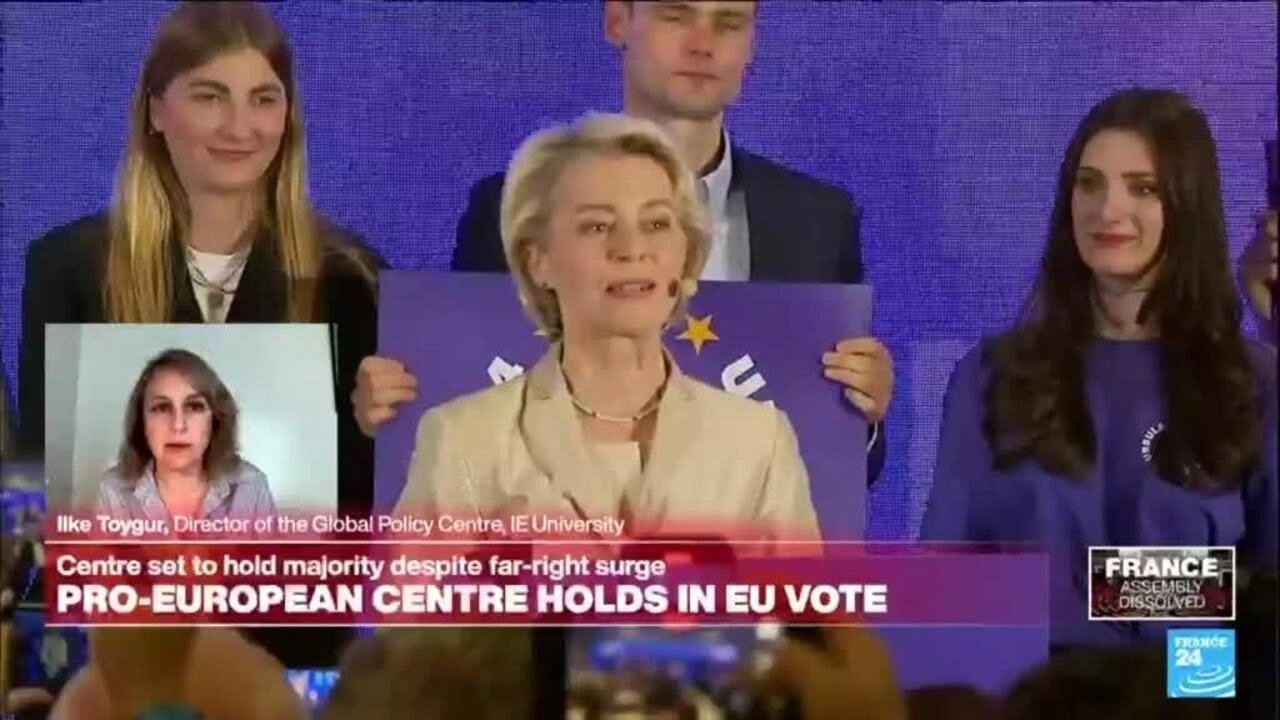In a recent analysis of the European Parliament election results, experts discussed the political dynamics and potential coalitions that could shape the EU’s future direction. Despite a rightward shift, a pro-EU coalition remains a feasible outcome. The elections have also placed pressure on governing parties across the EU, notably in France and Germany. Ursula von der Leyen appears in a strong position for a second term as President of the European Commission, supported by a potential centrist majority. However, negotiations with other political groups, including the Greens, are expected to be crucial for her to secure her position.
- The political center has held in the European Parliament despite a rightward shift.
- Provisional election results have put pressure on several governing parties across the EU, particularly in France and Germany.
- Ursula von der Leyen is in a strong position for a second term, supported by a potential centrist majority.
- Negotiations with the Greens and possibly other groups are expected to be key for von der Leyen to secure her position.
- The French political landscape is in crisis mode, impacting the country’s ability to influence EU politics.
- The far-right made gains in France but did not overall increase their presence in the European Parliament compared to previous elections.
- The European People’s Party and the Social Democrats remain stable, with a slight rise in support for the European People’s Party.
- Germany’s political situation is worrying for mainstream parties, but a snap election is deemed unlikely.
- Europe’s stance on pro-democracy and support for Ukraine is expected to continue despite political upheaval in some member states.
- The Green Deal and competitiveness are becoming linked agendas, signaling a potential shift in EU priorities.
France 24 is an international television network and news website owned by the French state.
Official website: https://www.france24.com/en/
Original video here.
This summary has been generated by AI.

Leave a Reply